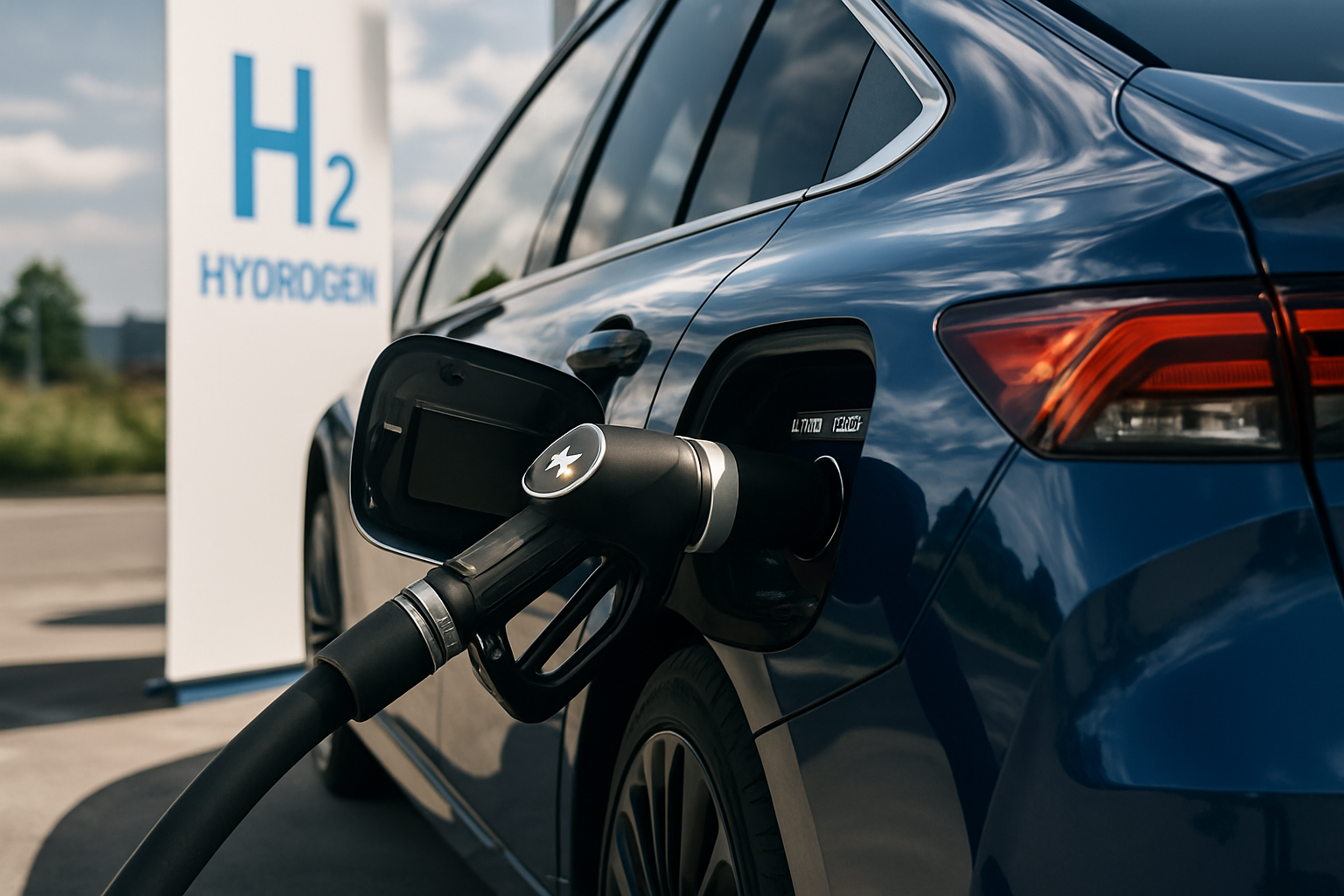Hydrogen Combustion Engines: The Next Frontier in Green Performance
Imagine a world where high-performance sports cars roar down the track, leaving nothing but water vapor in their wake. This isn't science fiction – it's the promising reality of hydrogen combustion engines. As the automotive industry races towards a greener future, this technology stands out as a thrilling compromise between eco-friendly propulsion and the visceral experience of internal combustion that enthusiasts crave.

Chemistry Meets Horsepower: How Hydrogen Engines Work
At its core, a hydrogen engine operates similarly to a gasoline engine. The key difference lies in the fuel. Hydrogen, stored in high-pressure tanks, is injected into the combustion chamber where it mixes with air. When ignited, the resulting explosion drives the pistons, creating mechanical energy. The exhaust? Pure water vapor. This process preserves the familiar engine note and driving dynamics while eliminating harmful emissions.
Overcoming Hurdles: The Engineering Challenge
Developing hydrogen combustion engines isn’t without its challenges. Engineers must contend with hydrogen’s low energy density by volume, requiring larger fuel tanks or more frequent refueling. Additionally, preventing pre-ignition and managing combustion temperatures pose significant hurdles. However, innovative solutions like direct injection systems and advanced engine management software are rapidly addressing these issues.
Performance Potential: Racing Towards a Greener Future
Contrary to initial skepticism, hydrogen engines are proving their mettle in performance applications. Toyota’s hydrogen-powered Corolla Sport race car, which competed in Japan’s Super Taikyu Series, demonstrates the technology’s potential. With instant torque delivery and high-revving capabilities, hydrogen engines could offer a unique blend of performance and sustainability that appeals to both environmentally conscious consumers and die-hard petrolheads.
Infrastructure and Adoption: Paving the Way for Hydrogen
The success of hydrogen combustion engines hinges on the development of a robust fueling infrastructure. While currently limited, investment in hydrogen production and distribution networks is growing. As automakers and governments recognize the potential of this technology, we’re likely to see an acceleration in hydrogen adoption, particularly in markets where battery electric vehicles face limitations.
Comparing Technologies: Hydrogen vs. Electric vs. Gasoline
Hydrogen combustion engines offer several advantages over both traditional gasoline engines and battery electric vehicles. Unlike EVs, they can be refueled quickly and don’t rely on heavy battery packs. Compared to gasoline engines, they produce zero emissions while retaining familiar driving characteristics. However, they currently lag behind in overall efficiency and face infrastructure challenges that electric vehicles have already begun to overcome.
The Sound of the Future: Preserving Automotive Heritage
One often overlooked aspect of hydrogen combustion engines is their ability to preserve the auditory experience of driving. While electric vehicles operate in near silence, hydrogen engines maintain the satisfying growl that many enthusiasts consider essential to the driving experience. This characteristic could play a crucial role in maintaining the emotional connection between driver and machine in an increasingly electrified world.
Beyond Passenger Cars: Industrial Applications
The potential of hydrogen combustion extends beyond personal vehicles. Heavy-duty trucks, buses, and even aircraft could benefit from this technology. In scenarios where battery weight and charging times pose significant challenges, hydrogen engines offer a compelling alternative. This versatility could accelerate the adoption of hydrogen as a fuel source across multiple transportation sectors.
A Greener Manufacturing Process
An often-overlooked advantage of hydrogen combustion engines is their similarity to existing gasoline engines in terms of manufacturing. This compatibility allows automakers to leverage current production facilities and expertise, potentially reducing the environmental impact and cost of transitioning to new propulsion technologies. It’s a win-win scenario that could accelerate the industry’s shift towards sustainability.
The Road Ahead: Challenges and Opportunities
As promising as hydrogen combustion engines are, significant challenges remain. Cost-effective hydrogen production, storage, and distribution must be addressed. Additionally, improving overall system efficiency to compete with rapidly advancing electric powertrains is crucial. However, with continued research and development, hydrogen engines could carve out a significant niche in the automotive landscape, offering a unique blend of performance, sustainability, and driving engagement.
In conclusion, hydrogen combustion engines represent an exciting frontier in automotive technology. By combining the familiarity of internal combustion with the environmental benefits of zero-emission propulsion, they offer a compelling vision of the future of performance driving. As the technology matures and infrastructure develops, we may soon see a new generation of high-performance vehicles that satisfy both our need for speed and our responsibility to the planet.






